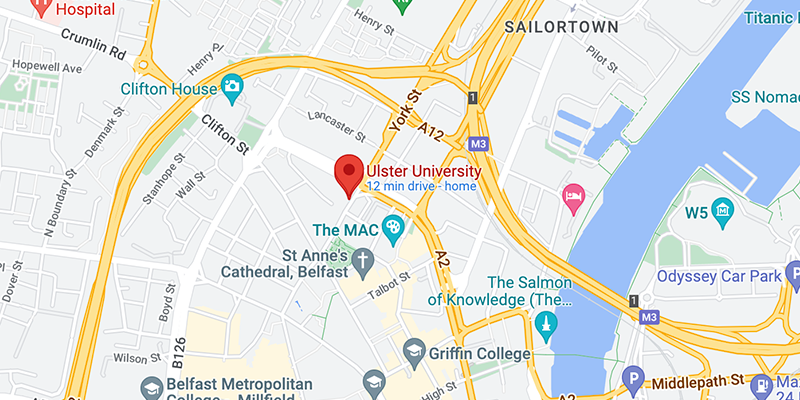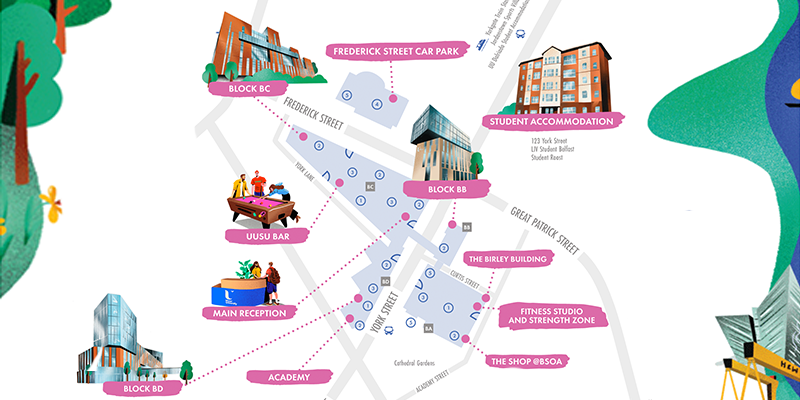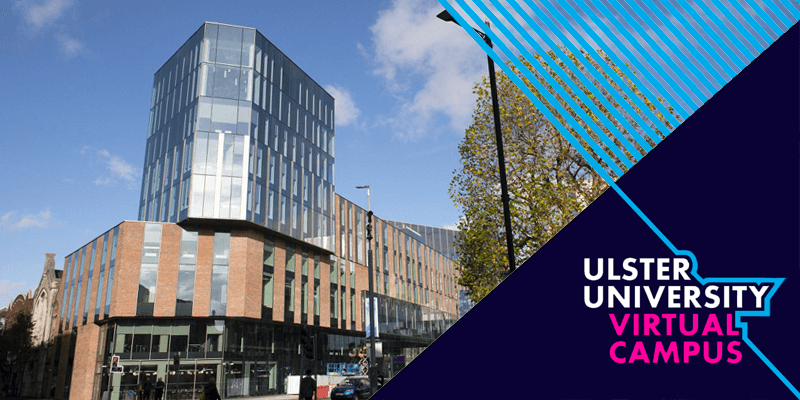Page content
As part of Ulster University’s series of events marking the 25th anniversary of the Belfast Good Friday Agreement and to formally launch a special issue of Space & Polity, the School of Applied Social and Policy Sciences is hosting a one-day symposium to critically assess the impact of the agreement on Northern Irish society today and explore the challenges it faces in the immediate future.
The 1998 peace accord was a landmark achievement – it largely ended the violence that characterised the conflict we know as the Troubles and the provisions of the agreement formed the basis for devolved power-sharing governance. It also transformed relations between North and South as well as signaling a highpoint and new era in Anglo-Irish relations.
While the agreement undoubtedly furnished periods of relative peace and stability for many over the last quarter of century, the issues facing Northern Irish society today suggests increasing instability and liminality. Periodical suspensions of devolved governance, Brexit, changing demographics, and the reinvigoration of the constitutional question, among others, have all contributed to a febrile environment that raises questions regarding Northern Ireland’s ‘post-conflict’ status.
The 25th anniversary of the agreement has occasioned many events, conferences and commentary reflecting on the political choreography and key personalities involved in the negotiations. This symposium, however, is concerned less with the political figures and events leading to the 1998 accord and instead seeks critical conversations on Northern Ireland’s present and future.
The event brings together a diverse range of practitioners, civil society, activists, researchers, policy analysists, community workers, academics – to critically assess where Northern Ireland is today while also examining future challenges and opportunities.
The event will comprise panel discussions and research presentations covering a range of topics including Legacy, class and inequality, race, memory and intergenerational trauma, census 2023 and changing demographics, constitutional futures, among others.
| Time | Location | Topic |
|---|---|---|
| 10.30 - 12.30 | BD-01-016 |
Legacy: Dealing with the past Chair Professor Patricia Lundy Daniel Holder, Committee on the Administration of Justice, Mark Thompson, Relatives for Justice, Paul McIlwaine, Sandra Peake (WAVE Trauma) |
| 12.30 -13.15 | Lunch break | |
| 13.15-14.45 | BD-01-016 |
Plenary Session A, Chair Niall Gilmartin Northern Ireland's Demographic transition(s). The 2021 Consensus and the prospect of constitutional change Colin Coulter, Maynooth University, Peter Shirlow, University of Liverpool Monitoring and assessing the progress of peace in NI Gráinne Kelly and Ann-Marie Gray. Class and inequality in Northern Ireland Eoin Flaherty, Maynooth University |
| 13.15-14.30 | BD-00-011B |
Plenary session B, Chair Phillip McDermott Paramilitarism and armed groups - thirty years from the ceasefires. Jonny Byrne and Duncan Morrow, Ulster University. Meeting ground and conflict site: The role of spatial liminality in the regulation of violence near interfaces in North Belfast. Théo Leschevin, EHESS, Paris. "Devout, profane and hard" chasing integration policy in Northern Ireland. Fiona Murphy, DCU and Ulrike M.Vieten, Queen's University Belfast. |
| 13.15-14.30 | BD-01-018 | Plenary Session C, Chair Una Convery. A "fresh start through sport?" supporting the transition to adulthood in Northern Ireland. |
| 14.30 - 15.00 | Coffee break | |
| 15.00 - 16.30 | BD-01-016 | Panel: Prospects: Constraints, opportunities, & uncertainties in Northern Ireland's Future. Chair Dr David McCann Prof Colin Coulter, Maynooth University, Eileen Weir, Shankill Women's Centre, Chris Donnelly, Political commentator and columnist, Cllr. Lillian Seenoi-Barr, SDLP and North-West Migrants Forum |
| 16.30 | Drinks reception |
Belfast Campus
2-24 York Street, Belfast, BT15 1AP
Event Info
This event has ended






















